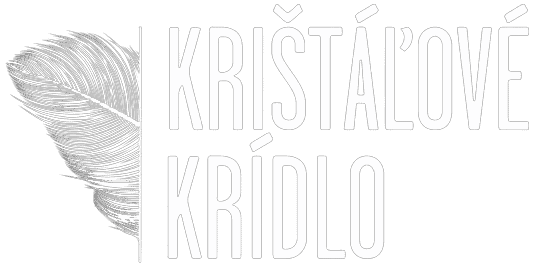The rise of Banking-as-a-Service and what it means for building a bank
In our previous articles, we discussed the rise and promise of the niche banks. The idea of a traditional bank is long gone, and there are many opportunities to provide financial institutions for a specific market segment. In this next series, we will equip you with the right information to go from an idea to build.
The first article will highlight 6 providers from Europe and the US that are at the forefront of “one-stop shops” vendors for quickly launching a bank or fintech.
The banking-as-a-service (BaaS) model gained momentum off a few years ago, shortly after the early wave of unbundlers of financial services such as Moven, Mint or Paypal. BaaS providers quickly became the backbone of many neo banks and fintechs that were looking to create customer-centric products and services.
Their main advantage was speed to market, and the ability to easily cater to changing digital customer expectations. Some of these providers even acquired a banking license to augment those providers who do not want to undergo the process of applying for a banking license.
We have segmented the providers we will look at based on what types of companies they are servicing. First, the providers who primarily serve fintechs. They are priced on the less expensive side of the spectrum and focus on an easy-setup. Second, we look at providers who work with bigger enterprises and large banks. They are quite standardized and tend to have their own banking license. They can support very large products and enterprises. We will also highlight a wild card player in the US.
Solutions for smaller banks and fintechs

As mentioned above, a handful of providers are focusing on the newer players, predominantly pure-play fintechs. One is Treezor, a pure-play banking as a service provider operating since 2015.
Treezor is an e-money institution with a payment services license accredited by the French Prudential Supervision and Resolution Authority. It is a principal member of the Mastercard network and part of the SEPA network. In addition to financial institutions, it also targets traders and collaborative platforms. It’s banking focus specifically highlights credit institutions and neo-banks.
In a nutshell, Treezor can offer a range of services from online acquiring, a card program, payments, KYC and compliance. In addition, it offers a holistic digital banking solution which includes:
- IBAN allocated to each wallet
- Multi-currency wallets
- Parent/child wallets
- SCT, SDD Core, SDD, B2B
- P2P and wallet transfers
- Plastic prepaid or debit card, including virtual payment cards
From a technical perspective, Treezor is purpose-built for quick integration and set-up. It offers a flexible API (REST or SOAP), while encouraging the creation of a test account to test the Treezor API in a sandbox.
Treezor currently works with a handful of niche banks and fintechs including Lydia, a neo-mobile bank for French millennials, Qonto, a neobank in France (and soon Spain, Germany and Italy) for freelancers and SMEs and Compete CO2, a payment card program that fights against climate change with a “climate currency.” Treezor is a great out of the box solution to get your neo banking up and running with a prepaid or debit card.
Another vendor is Bankable, which offers white-label payment solutions such as e-wallets, remittance services, P2P money transfers and prepaid card programmes. Bankable was founded in 2010 and recently announced a strategic partnership with Visa, boosting the BaaS capabilities.
Bankable’s Digital Banking product suite is set-up to allow anyone to launch a digital bank from scratch, including IBAN accounts, payment cards and access to Faster Payments, SEPA and SWIFT. Companies that are not regulated can use this platform from Bankable.
Similar to Treezor, Bankable offers a solution primarily for consumer-facing fintechs or niche banks looking to offer a single or multi-currency offering, payments and IBANs, but the firm also fits nicely in the corporate segment, offering smart corporate card management.
Solutions for existing banks and larger enterprises
Exploring the BaaS space if you are an established bank or a larger enterprise looking to make a play in financial services Fidor Solutions and SolarisBank are two standout vendors both hailing from Germany.
Fidor Solutions is the first digital-only bank in Germany and now commercializes its tech stack to banks and startups, while SolarisBank positions itself as a tech company with a full banking license. It allows companies to passport into Europe via its banking license and also offers a banking platform with highly advanced APIs.
Both providers can offer a comprehensive service including core components such as:
- Bank license
- Full onboarding, including real-time opening of accounts via video identification
- Core banking services including IBANS, SEPA payments and multi-currency conversion
- Cryptocurrency banking services (Fidor works with Kraken, while Solaris with Bison)
There are a few differences between the two companies, largely dictated by the origination of each. For example, Fidor offers a Community Platform and also a white-label ready and responsive web and native app. On the other hand, Solaris appears to have the edge of working with more non-traditional financial companies, which makes sense given the fact it began purely as a B2B2C company.
A few considerations should be taken to understand which may be right for you. If you are a large enterprise, Fidor has worked previously with O2, launching the O2 bank in Germany. For crypto companies, Fidor has the edge having played in this space longer than Solaris. Furthermore, Fidor is able to provide a white label front end, while Solaris provides only bank-end solutions.
Solaris, however, has a more established record with early-stage fintechs such as Penta, Tomorrow and Kontist, and offers more of a pick and mix, modular solution available through their state-of-the-art APIs. Furthermore, it appears that the Solaris Banking License is more readily available for new entrants than Fidor.

While Fidor and SolarisBank primarily cater to European companies, Q2ebanking in the US has established itself as a leading BaaS vendor specializing in both technology and design. It offers an API-based solution for full accounts and debit card origination and payment processing and recently acquired Cloud Lending, offering fully digital lending capabilities. Besides the APIs, Q2 also offers a full-fledged digital banking platform that covers everything from the front-end user experience all the way to security and compliance backbone. Q2ebanking primarily works with credit unions, so while it may not be able to cater to large enterprises or banks, it appears to fill the gap in the middle of the road between fintechs and banks.
The Wildcard
It wouldn’t be an article on innovative players if we didn’t highlight one coming out of Silicon Valley. Synapse offers payment, deposit, lending and investment products as APIs to Fintech companies with a focus on the US. Amongst card issuance (both virtual and physical) for individual and business accounts, it also offers Savings Accounts, One-time loans, ACH Payments and Wire Payments via developer-friendly APIs.

This last part, developer-friendly APIs, is one of the reasons Synapse stands out. Their ethos is all about making it easier for companies to connect with banks, and in turn, for banks to automate and extend their back-end operations. Their play is focused on internet companies offering financial services, and with a Q4 2019 plan to launch in Europe and Canada, they could be an interesting option for those tech-focused companies looking to play in the banking space.
Now what?
This article highlighted a handful of providers that can offer you the most support in building your niche bank or fintech startup. While all providers offer the basics of cards, payments and issuing, each also has additional areas of expertise that can support various parts of a niche bank offering.
From a technical perspective, all providers provide innovative APIs and are purpose-built for smooth integrations. However, before progressing with selecting a BaaS provider, there are a handful of topics for consideration to ensure you select the right partner and start off on the right foot when building your niche bank:
- To what extent is your organization already experienced in financial services? Do you offer any tangential financial services at the moment? If not, do you plan to apply for your own banking or e-money license or not?
- Do you have somebody in your team with deep financial services knowledge? It is valuable to have somebody to serve as a liaise between your team and these vendors. That applies for both the negotiation and deal set-up phase to ensure you do not come out shorthanded, as well as the deployment phase, where previous experience is invaluable to deliver on-time and smoothly.
- What is your goal for launching the financial service? Which product or products will resonate most closely with your target customer segment? Some of these providers excel in certain product sets, while the fee structure for each will also vary. A strong understanding of the proposition is vital for selecting a provider to build your niche bank.
While these providers above are great for a one-stop-shop, many niche banks have decided to take a pick and mix approach, taking some aspects of building a bank in house while outsourcing other components. In the upcoming articles, we will explore vendors for core parts of building a bank.











